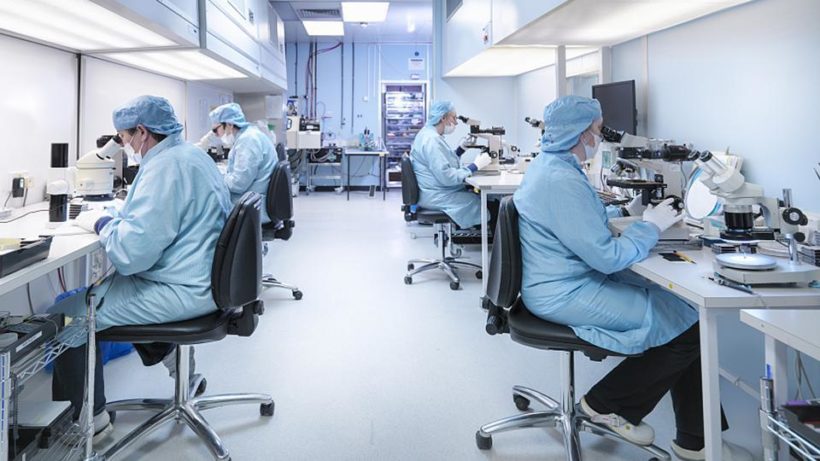Chinese scientists have developed a candidate mosaic nanoparticle vaccine against COVID-19 that can protect against COVID-19 variant infections.
Scientists from Sun Yat-sen University, Guangzhou Medical University No. 1 Affiliated Hospital and Guangdong Provincial Center for Disease Control and Prevention designed the tetravalent mosaic nanoparticle vaccine comprising herringbone proteins of the SARS-CoV-2 prototype and three main variants, namely alpha, beta and gamma.
The spike protein of the virus is known to play a key role in viral binding and fusion with the host cell and is therefore targeted by most antibodies that neutralise viral infection.
However, mutations of virus variants located in the spike protein led to widespread antibody resistance and immune escape from immune induction serum, creating additional uncertainty about the efficacy of existing vaccines.
The nanoparticle has been shown to be able to produce equivalent or superior neutralising antibodies against variant strains in mice and non-human primates with only a small reduction in neutralisation titers against the ancestral strain, according to the study published recently in the journal Nature Communications.
The experts also tested the vaccine against the omicron and lambda variants of the coronavirus. The two variants only slightly reduced the neutralising potency of the immune induction serum, suggesting that the latter could elicit broadly protective antibody responses against the circulating variants, according to the study.
The results provide a proof-of-principle for the development of multivalent vaccines against pandemic and potentially pre-emergent SARS-CoV-2 variants, the researchers said.












